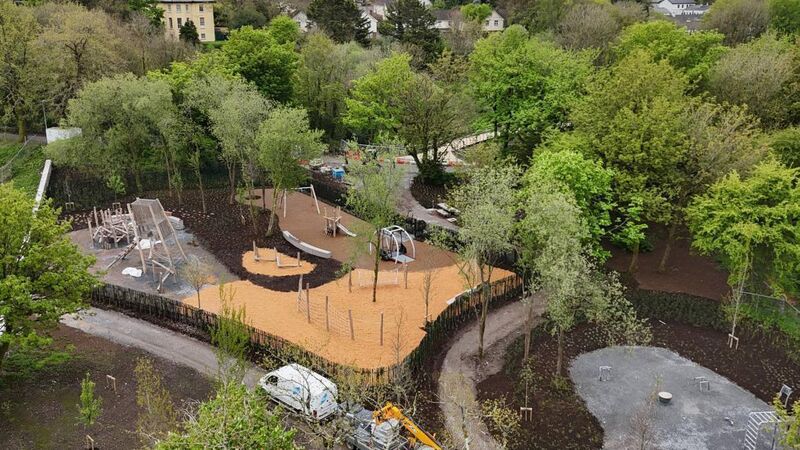Reimagine Cork city? Process has already begun, Taoiseach

“‘It seems to me cities and towns are changing, and we have to reimagine what a city centre would look like and how we sustain commerce in the city centre but also bring in more residential,” stated the Cork TD.
Last month, Tánaiste Simon Harris said the Government would be establishing a taskforce on Cork, after promising during the election campaign that Fine Gael would seek its creation within 100 days of Government – a deadline that passed in early May.
In fact, significant groundwork for such a taskforce is already complete.
A reimagining of the core of the city that involved extensive consultation with Cork communities was published by the Public Participation Network (PPN) in June. This document showcases what emerges when communities are allowed to set the agenda.
The PPN is an organisation that supports community groups to have a more significant say in how the city is run and is now the primary way local authorities connect with community groups active in their area.
In their recent report, , the PPN asked contributors two questions:
What does your community need to be well?
What actions do we need to take to bring us there?
In a decade of climate and biodiversity turbulence, there are three areas that are fundamental to a safe and healthy planet as well as community health and wellbeing.
Cork city is particularly vulnerable due to its low-lying position within the River Lee catchment area. Practical measures to make it a sustainable, environmentally focused, biodiverse city include: advocating for world class, evidence-based flood defences; providing community recycling centres accessible to every community and providing public water fountains across the city.
Priority needs to be given to the development of green spaces, parks, urban forests, and rooftop gardens that contribute to carbon sequestration, biodiversity and improve the city’s liveability.
Sustainable transport is essential with investment in infrastructure and policies that promote cycling, walking, wheeling and public transport and make them safe, attractive, and affordable.
Transport emissions and congestion could be reduced by introducing congestion charges, an increased availability of EV charging stations, and short-term rental cars so that people can use a vehicle when they need to while using public transport when they do not.
A circular economy needs to be promoted through waste management policies, encouraging repair, reuse, recycling and composting alongside repair cafés and tool libraries.
Community resilience can be embedded with community gardens, flood defence mechanisms, and local food production systems.
Housing is top of the agenda for the redevelopment of Cork city centre. The PPN suggest the best way to provide a stable system ‘is to build public housing on public land and maintain state ownership of housing stock’ with a planning process that focuses on communities, not homes. Housing must be connected to public transport and walking networks.
Legislation is needed to prevent cuckoo funds and real estate investment trusts (REITs) buying up large sections of housing stock for rental. The city needs a city-wide affordable housing strategy that prioritises marginalised communities, ensuring they are not priced out of the city. All houses should be surrounded by social infrastructure, leisure and green spaces, and work opportunities.
Planning applications need to consider long-term planning for how sea level rises will impact the development and involve mitigating measures where necessary.
To increase community safety, early intervention projects are needed to support young people before they become disconnected from their community and support caregivers to connect to local sports and community groups. All spaces need to be well-lit and well connected to transport links with more visibly present Community Gardai.
A resilient, healthy population needs world-class primary care facilities in our communities that are well resourced, accessible and free. Decentralised hospital outpatient care would allow people to supported in their communities where possible.
Early intervention programmes for young children must be prioritised to provide whole family support and reduce the need for more costly interventions further down the road.
Mental health services need to be easily accessible and adequately funded across the city with targeted supports for diverse groups such as the LGBTQIA+ community, young people, travellers, migrants and refugees and disabled people.
Increased access to ED and SouthDoc services is needed.
Health and wellness can be embedded in urban planning to ensure public spaces are designed and maintained to encourage physical activity and interaction. The development of Cork Marina Park and greenway is an excellent example of how this can be done to the highest standard.
Local drug and alcohol task forces are needed to deliver targeted and universal support to communities with increased funding for residential detox and addiction services a priority.
Fresh food needs to be available locally at affordable prices through community gardens and subsidised markets.
A world-class Lido where people can come together and swim outdoors safely all year round, would contribute to health and wellbeing of communities across the city.
Other areas to boost the local economy and reduce carbon emissions include local supply chains encouraging businesses to source locally.
The development of annual ‘Cork City Business Awards’ to recognise businesses and social enterprises that are leaders in equality, inclusion, sustainability and innovation would incentivise businesses to engage in inclusive, sustainable practices.
Fifteen-minute urban neighbourhoods and high-quality remote working hubs are needed across the city where people can work in a quiet, well-resourced environment close to home
PPN Coordinator Orla Burke acknowledges that many would look upon the results of its consultation as ‘bluesky’ thinking. “But maybe we need more of that,” she suggests. “We are halfway through the ‘moonshot’ decade for the earth and civilisation.”
Maybe we need more aspirational approaches to support community voices during this turbulent decade. We need to connect; to create empathy and kinship with each other; and we cannot leave anyone behind.
is available on the Cork Healthy Cities website: https://corkhealthycities.com/publications/a-vision-for-community-wellbeing-in-cork-city/
Dr Catherine Conlon is a public health doctor in Cork.







 App?
App?




